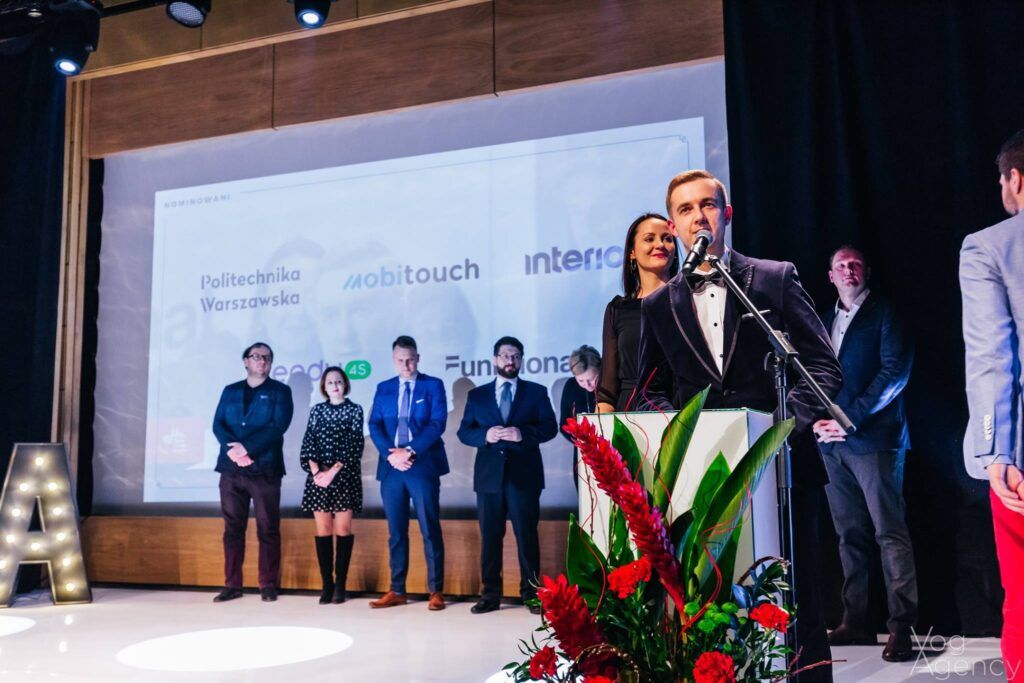One in three conversations about AI involves Ladybug’s chatbot!
Topics of artificial intelligence and voicebots and chatbots arouse considerable interest among Polish Internet users, according to SentiOne. In 2021. there was a lot of discussion on this topic when new companies launched virtual assistants – and there were a lot of them. The most popular was the chatbot of Biedronka, which concerned as much as 35% of the Internet users. calls. No wonder companies are reaching for such solutions – bots can handle many issues on their own and reduce call time to the hotline by up to 20%.
Just two years ago, the interest in the use of bots and customer service automation was moderate, but during the lockdowns the situation has definitely changed – many companies have decided to implement virtual assistants to relieve the burden of besieged hotlines. This also translated into an increased interest in bots among Polish Internet users. In 2020. they mentioned about voicebots and chatbots almost 13 thousand. times, and all mentions reached 18 million impressions of the coverage, according to the analysis of Polish SentiOne, a company that supports brands in monitoring the Internet and social media and automating customer service with the use of advanced artificial intelligence. Their solutions are used in Poland by.in. Alior Bank, BNP Paribas and Kruk S.A.
Increases in Internet users’ interest in the subject of bots coincided with the announcement by successive companies of the launch of their virtual assistants – and those in 2021. there were quite a few. There was a lot of interest in January when Microsoft announced that with the help of bots it will enable “resurrecting the dead” – that is, creating their avatars and talking to them through the use of AI.
We willingly talk to bots, as long as they do not try to pretend to be real people
Other topics were less controversial. In the past year, as many as three companies from the cosmetics industry decided to implement bots for customer service – Rossman (in April), Golden Rose (in May) and Avon (in August). The launch in March of the official chatbot of Wrocław, described as “Poland’s first virtual local government advisor”, providing information to residents and tourists, aroused great interest. For two months – in September and October – there was no quiet talk about the new chatbot of Biedronka, which accounts for 35 percent. all mentions of bots in 2021. In addition, bots launched by Lay’s (February), PKP Intercity (June), InPost (July) and EURO RTV AGD (December) were also discussed a lot. Avon bot was rated the best – as much as 40 percent. The statements regarding it had a positive tone. In addition, there was a lot of discussion in April about a study according to which Recipients prefer to talk to bots with a female personality, because they consider them more human and trustworthy. On the other hand, in November a study by Dechra attracted a lot of interest, which shows that people are interested in talking to conversational artificial intelligence and are not against its use in customer service, as long as it does not hide the fact that it is not a real person.
Most conversations about bots take place on Facebook, followed by portals dedicated to new technologies. As far as 67%. The discussants are men. The only time when women gained the upper hand in terms of the number of contributions was at the end of August, when Ewa Chodakowska presented her chatbot answering the questions of people interested in taking part in the #90dnizaprojektujswojejutro challenge.
Artificial intelligence still causes embarrassment to callers
In 2021. The interest in the topic of bots among Internet users dropped a bit, reaching the level of 10.3 thousand. mentions and 17 million impressions of the reach. The number of statements about voicebots and chatbots is decreasing as they become more and more an everyday element of reality. We may be talking about them less and less, but we are talking to them more and more – says Agnieszka Uba, Head of Product Marketing at SentiOne – We analyzed 15 thousand. records of conversations with bots working for various industries from the past three months to see what customers talk to them about. The most frequent request is to call a consultant. Although it may seem that the bot in this case did not perform any task, it still saved time of the client and the consultant. After defining the topic of the conversation, it directs the call immediately to the right department, which It shortens its duration by up to 20%. The second most common reaction to answering a call by a virtual assistant is… silence. Many people do not know how to talk to a bot, whether it can speak normally or in passwords. Therefore, when designing a bot, it is necessary to program its reaction to awkward silences. When interrupted, its customers tend to get bolder. Our bots understand the intent of callers with an effectiveness of 96 percent., so you can easily talk to them as with real people.
Bots also work well in internal communication of companies
The most frequent tasks of bots include customer authentication and verification, who want to get something done, e.g. connect wi-fi to a new apartment address, report the status of a gas or electricity meter, inquire about the amount of a water bill, check the status of a shipped package or unlock a bank card. On bank hotlines customers most often ask bots about the offer and loan repayment options.
Bots are increasingly used not only for customer service, but also in internal communication – e.g. to onboarding new employees or providing information. They can be an invaluable source of information for companies and HR departments, because Employees talk to them more freely than to a real person – e.g. They mention problems with co-workers, ask for raises, or even ask to change departments.
While we are serious when it comes to talking to voicebots and want to get our business done quickly and efficiently, when it comes to text bots, on Messenger, a website or Whatsapp, we like to troll. Therefore, it is in the case of chatbots that artificial intelligence most often activates processes related to small talk. Callers demand proof that they are talking to a bot, ask to tell jokes, and even ask: ‘do you love me’?” – adds Agnieszka Uba, Head of Product Marketing at SentiOne.





